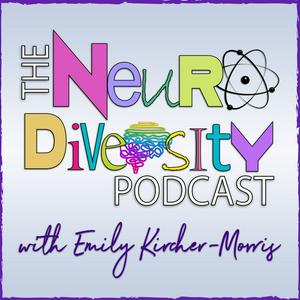Presuming Competence: A Nonspeaking Person Finds His Voice
Emily Kircher-Morris welcomes Sumit and Viraj Dhanda, a father-son duo who are working to update and rethink norms around communication, intelligence, and inclusion. Viraj is a nonspeaking autistic student who was diagnosed with autism and apraxia as a young child. Viraj and his father, Sumit, talk about their journey navigating the challenges and misconceptions surrounding non-verbal communication, the impact of apraxia, and the importance of presuming competence. Viraj shares his personal experiences through a communication tool, and tells the story of when he and his father discovered his unique condition. TAKEAWAYS Many non-speakers have apraxia of speech. Potential can be missed when you fail to presume competence in non-speaking people. Typing can be a transformative communication tool for non-speakers. Misconceptions about non-verbal communication can be damaging. Advocacy and persistence can lead to breakthroughs in education. Parents should explore all communication options for their children. Non-speaking people can and do have rich, complex thoughts. Education systems should rethink expectations for non-speakers. Emerging technologies offer hope for non-speaking people. Viraj and Sumit Dhanda are a father-son duo reshaping the conversation around communication, intelligence, and inclusion. Viraj, a nonspeaking autistic student admitted to MIT's Class of 2029, was diagnosed with autism and apraxia in early childhood. Through typing, he broke through profound communication barriers and revealed extraordinary strengths in mathematics, writing, and critical thinking. His poetry and essays offer rare insight into the inner world of nonspeaking autistics and have been featured by The Boston Globe, CBS Evening News, and NPR's Here & Now. Sumit, a finance professional and former executive at Bank of America Merrill Lynch, Citadel Securities, and Evercore ISI, now dedicates much of his time to advocacy and storytelling alongside his son. With a PhD in Electrical Engineering from Stanford and graduate degrees from Dartmouth and BITS Pilani, Sumit brings a unique lens to the conversation. Together, they are co-authoring a memoir that weaves their two perspectives into one powerful narrative—challenging assumptions and expanding what we understand about neurodiversity and human potential. BACKGROUND READING Twitter/X, Instagram, Facebook, LinkedIn If you'd like members of your organization, school district, or company to know more about the subjects discussed on our podcast, Emily Kircher-Morris provides keynote addresses, workshops, and training sessions worldwide, in-person or virtually. You can choose from a list of established presentations, or work with Emily to develop a custom talk to fit your unique situation. To learn more, visit our website. The Neurodiversity Podcast is on Facebook, Instagram, BlueSky, and you're invited to join our Facebook Group.


